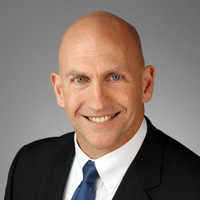How to Manage Cash, Your Most Overlooked Asset
As far as investment portfolios go, cash doesn't get the respect it deserves. It should be valued as a star player on your retirement plan.


Profit and prosper with the best of Kiplinger's advice on investing, taxes, retirement, personal finance and much more. Delivered daily. Enter your email in the box and click Sign Me Up.
You are now subscribed
Your newsletter sign-up was successful
Want to add more newsletters?

Delivered daily
Kiplinger Today
Profit and prosper with the best of Kiplinger's advice on investing, taxes, retirement, personal finance and much more delivered daily. Smart money moves start here.

Sent five days a week
Kiplinger A Step Ahead
Get practical help to make better financial decisions in your everyday life, from spending to savings on top deals.

Delivered daily
Kiplinger Closing Bell
Get today's biggest financial and investing headlines delivered to your inbox every day the U.S. stock market is open.

Sent twice a week
Kiplinger Adviser Intel
Financial pros across the country share best practices and fresh tactics to preserve and grow your wealth.

Delivered weekly
Kiplinger Tax Tips
Trim your federal and state tax bills with practical tax-planning and tax-cutting strategies.

Sent twice a week
Kiplinger Retirement Tips
Your twice-a-week guide to planning and enjoying a financially secure and richly rewarding retirement

Sent bimonthly.
Kiplinger Adviser Angle
Insights for advisers, wealth managers and other financial professionals.

Sent twice a week
Kiplinger Investing Weekly
Your twice-a-week roundup of promising stocks, funds, companies and industries you should consider, ones you should avoid, and why.

Sent weekly for six weeks
Kiplinger Invest for Retirement
Your step-by-step six-part series on how to invest for retirement, from devising a successful strategy to exactly which investments to choose.
With stocks overvalued and bonds looking riskier than ever as interest rates continue to go up, it’s really hard to know where to put your money. Some investors are left wondering if any asset classes are being overlooked.
Yes, there’s a very big one. Cash.
For purposes of this discussion, let’s define cash as broadly as possible. Cash is the currency in your wallet (or that safe in your house you thought nobody knew about), the funds in your bank checking and savings accounts, as well as your money market accounts. It’s the medium of exchange with which we can buy things.
From just $107.88 $24.99 for Kiplinger Personal Finance
Become a smarter, better informed investor. Subscribe from just $107.88 $24.99, plus get up to 4 Special Issues

Sign up for Kiplinger’s Free Newsletters
Profit and prosper with the best of expert advice on investing, taxes, retirement, personal finance and more - straight to your e-mail.
Profit and prosper with the best of expert advice - straight to your e-mail.
Cash is the offensive lineman of personal finance. It’s huge, it’s important, it’s not sexy and nobody ever thinks about it — until you need it. And by the time you realize you need it or you don’t have enough, it’s often too late.
It’s nearly impossible to separate the idea of cash from that of cash flow, which, as the phrase suggests, is the flow of cash into and out of a financial system.
For a business, as well as an individual, cash flow is like oxygen flow to the body. There may be plenty of oxygen out there somewhere, but if it’s not flowing into and out of my body right when I need it, I have a very slim margin of error available to me. Just as the body quickly dies when deprived of oxygen, individuals and businesses go bankrupt when experiencing a prolonged shortage of cash.
Anytime I work with a successful owner of a small business, I find that they have an almost reverential appreciation for cash — having lots of cash, “too much” cash and access to even more through lines of credit if needed.
So that we don’t experience a deadly deprivation of cash, it’s necessary to have a plan to maintain a constant cash flow. Here are five arenas in which cash flow planning is critical:
Lifestyle cash flow. Nothing else happens until you tame this beast. You have a certain amount of money coming in the front door. For most of us, that means earned income from a job. Priority No. 1 is to spend less than that — ideally, about 15% less. That way you can save for the rest of these priorities.
Emergency/opportunity cash flow. We never know when an emergency may arise or an opportunity may present itself. To be ready, have at least six months of your income readily available in cash. If you currently have zero, take heart — if you can spend 15% less than you take in (thereby saving 15%), you’ll reach this goal in three to four years. That may sound like a long time, but every step you take helps.
Catastrophe cash flow. Some things require cash in amounts that are essentially impossible to save. If your house burns down, you can’t just go to the old piggy bank and take out a loan. So be certain that the half dozen or so areas of major risk exposure (actual catastrophes) are covered adequately with insurance (which delivers cash at just the time you need it to pay for said catastrophe).
Investment cash flow. Ultimately, any investment you make must be turned into cash for it to be of any value to you. Do you know how you’ll convert land, houses, buildings, stocks, bonds or baseball trading cards to cash one day? Many investments actually pay you a certain amount of cash — bonds pay interest, stocks may pay a dividend, houses and buildings may pay rent and land may be leased either to farm or use recreationally.
Retirement cash flow. Finally, when you exit the workforce (whether voluntarily or not), how will you replace the flow of cash you regularly received from your employer? Many will have Social Security, but is that enough? Do you know how you will convert an IRA or a retirement plan to cash? If you do so, have you planned for the resulting risk of running out of money?
Cash pays almost no interest. It doesn’t make for interesting conversation. And the only way to double your money is to take it out of your wallet and fold it over.
Despite its boring trappings, cash should not only be a significant part of your financial plan, it should be its centerpiece.
Profit and prosper with the best of Kiplinger's advice on investing, taxes, retirement, personal finance and much more. Delivered daily. Enter your email in the box and click Sign Me Up.

Byron Moore, Managing Director, Planning Group, Argent Financial Group, helps clients protect, grow and enjoy their wealth by designing and implementing financial strategies that coordinate and balance a client's resources. His financial columns are syndicated in five Gannett newspapers in Louisiana. Byron has been a Certified Financial Planner® practitioner since 1991. He and his wife, Melinda, have four children. They are why he smiles a lot.